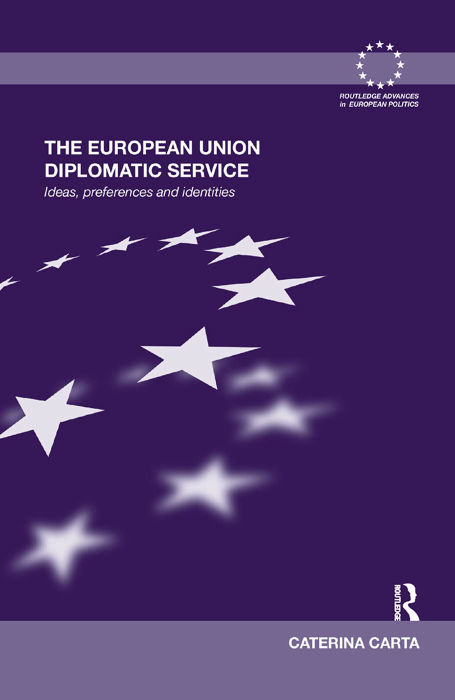Books
Natalia C. Carta
The European Union Diplomatic Service
Ideas, Preferences and Identities (Routledge Advances in European Politics)
How does a non-state actor like the European Union develop a diplomatic identity and practice in a world dominated by sovereign states? The European Union Diplomatic Service: Ideas, Preferences and Identities explores how the EU’s diplomatic network was built, how it operates, and how its officials perceive their roles on the global stage.
This book provides a detailed analysis of the institution- and identity-building processes within the EU’s diplomatic service, focusing on both Brussels and the Commission’s delegations worldwide. Carta examines the images and self-conceptions held by high-ranking EU foreign policy officials, revealing how their ideas about Europe and the Commission shape diplomatic practices and foreign policy priorities. The study traces the evolution of the EU’s diplomatic system, especially in light of the Lisbon Treaty, and explains how socialization processes within the service foster distinct role conceptions and collective identities among its practitioners.
Structured in four parts, the book covers the conceptualization of the EU diplomatic system, the institution-building and organization of the service, the perspectives of key actors, and future prospects for the European External Action Service (EEAS). Through an empirically grounded and theoretically informed approach, Carta demonstrates how the daily practices, preferences, and identities of EU diplomats influence the Union’s external actions and its image as a global actor
.
The book is a significant contribution to debates on European foreign policy and diplomacy, offering insights into how large institutional bodies develop and enact collective identities and practices in international politics. It is particularly relevant for students and scholars of European politics, international organizations, and diplomatic studi
The European Union Diplomatic Service: Ideas, Preferences and Identities stands out as a valuable resource for understanding the inner workings and evolving identity of the EU’s diplomatic apparatus. By highlighting the interplay of ideas, preferences, and daily practices, the book sheds light on how the EU navigates its unique position as a non-state diplomatic actor in a complex international environment.

